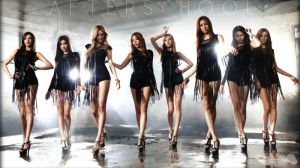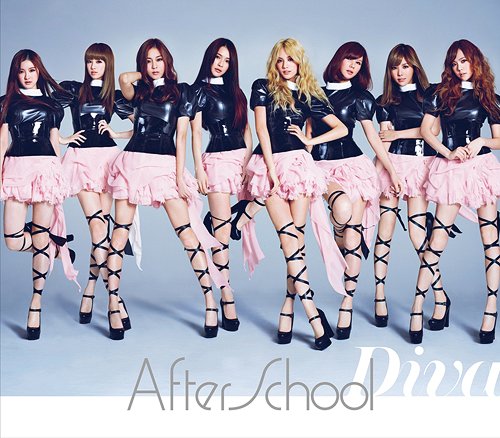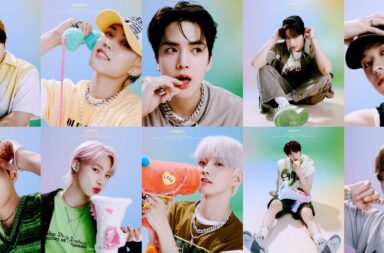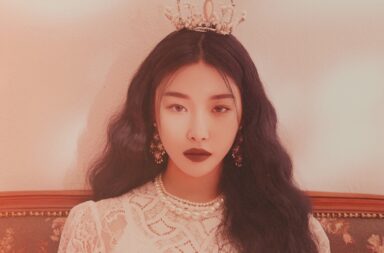 Welcome to another installment of Side B! This time, we’re exploring the discography of the ever-changing yet forever radiant After School.
Welcome to another installment of Side B! This time, we’re exploring the discography of the ever-changing yet forever radiant After School.
To say After School has changed momentously since their debut is a complete understatement. Since their debut in 2009, After School has transformed from a sultry, alluring five-member group to a more modern, youthful eight member unit. After School prominently utilizes a graduation system among its members, a notable aspect of the group in the K-popverse for the graduation system — made to ensure longevity and flexibility in an established group — is more common towards K-pop’s Japanese counterparts. From the original roster of Kahi, Jungah, Jooyeon, Soyoung, and Bekah, Soyoung, Bekah, and Kahi departed from the group through the system, and new members UEE, Raina, Nana, Lizzy, E-young, and Kaeun were admitted in.
Exploring After School’s discography has been a pretty intriguing experience simply due to the group’s massive configuration changes over time. As a clear result of the flexible and continually evolving lineup, After School’s discography is very dynamic and diverse, with the changes recognizable in clear, definable debuts and eras.  Not only have the new members provided additional voices for the group’s songs, they’ve also allowed the group to alter their image. Moreover, the addition of new members also helped serve as a platform for notable subgroups and subunits specializing in specific concepts; the Orange Caramel unit consisting of members Nana, Raina, and Lizzy has been the most prominent. After School has changed so much since their modest debut to the point where they can be — and in my opinion, should be — considered a completely different group.
Not only have the new members provided additional voices for the group’s songs, they’ve also allowed the group to alter their image. Moreover, the addition of new members also helped serve as a platform for notable subgroups and subunits specializing in specific concepts; the Orange Caramel unit consisting of members Nana, Raina, and Lizzy has been the most prominent. After School has changed so much since their modest debut to the point where they can be — and in my opinion, should be — considered a completely different group.
But nevertheless, despite their changes in dynamics, image, and sound, After School has consistently provided some quality B-sides over the years, and today, I’d like to share my personal favorite hidden gems of After School.
After School made their first (unofficial) appearance alongside labelmate and senior Son Dam-bi performing the gritty “Playgirlz,” the title that would eventually become the name of After School’s official fanclub. Being hyped up as the Korean version of the internationally popular Pussycat Dolls, the group made a powerful first impression with “Playgirlz.” Despite being only a minute and a half long, “Playgirlz” leaves a deep impression with its bold lyrics and equally fierce sound. Starting with Bekah and Kahi’s powerful rapping and eventually swiftly transitioning to Jungah’s husky vocals, the song leaves little space to breathe with its relentless sound, and all of the members are able to perfectly embody the attitude needed to pull the song off.
[youtube http://www.youtube.com/watch?v=Z_hJl85lOqc&w=600&h=360]Also on the girls’ debut effort, the single New Schoolgirl, is “Bad Guy,” another track demonstrating the attitude and sass of the After School of yore. “Bad Guy” was actually slated to be a followup for the girls’ debut single “Ah,” but it was banned for its use of profanity and its supposed inappropriateness. But what really strikes me about “Bad Guy” is how effortless the track seems. Rather than coming off as juvenile or childish in the attempt to conjure ‘attitude’ like some of their competitors, the sass just comes naturally to the members of After School, and this track fully illustrates this. While it may be lacking in the usual class and elegance After School is more noted for as of late — with its vulgar language and nature — it makes up for it with its completely gritty and sensual sound, as well as the members’ undeniable intensity.
[youtube http://www.youtube.com/watch?v=inBZRFE49NA&w=600&h=360]However, while the group has experienced multiple changes sound-wise, conforming to a more modern, club-like sound, the After School of recent times hasn’t necessarily lost the attitude and maturity that set the group apart before. To demonstrate, there’s “Virgin,” the title track of the group’s first full length album of the same name. “Virgin” is a very sassy and sexy song with a very addicting synthetic sound, reminiscent of the group’s previous work. However, “Virgin” sounds notably more polished and elegant, offering a different and more subtle type of maturity for the group. The song’s impossibly catchy chorus is definitely its biggest asset, for the song absolutely refuses to leave your head after multiple listens.
[youtube http://www.youtube.com/watch?v=hcf1BJqaKAc&w=600&h=360]While After School is a lot more famous for their upbeat title tracks, I absolutely adore some of the group’s ballads. The group has its fair share of forgettable mellow pieces, but it still manages to carry some impeccable ballad tracks in its considerable discography. First of all, there is “Play Ur Love,” a gorgeous acoustic ballad sung by members Kahi, Jungah, Raina, and Nana. The former three are the strongest vocalists in their group, and their abilities are wonderfully highlighted through this track. And while Nana is far from the best vocalist even just in her group, her voice has an underlying power that allows her to be useful and pleasant in slower ballad tracks such as this one. Furthermore, the beautiful track makes great use of the four members’ diverse vocal tones, making for some amazing harmonies among the four. From Jungah’s rich, husky vocal complexion to Nana’s more nasally tone to Raina’s clear and strong voice, the contrast between the members’ voices make for a highly dynamic and enjoyable piece.
[youtube http://www.youtube.com/watch?v=Uly4Bkvxy_8&w=600&h=360]While the group has become known for their maturity, sophistication, and dazzling appearances, the group hasn’t necessarily been known for their vocals. On the whole, the group doesn’t rank high among the broader spectrum of vocalists, but they undeniably carry a talented set of vocals, especially in Raina and Jungah. The two vocalists, who usually lay the vocal foundation for the rest of the group to shine, were finally given the change to fully showcase their skills in “Timeless,” a bittersweet track in the group’s Flashback single. The melancholy R&B track features some great vocal work between the two belters. The harmonies are pinpoint perfect, and the duo’s emotional capacity was fully tapped into for the smooth and breezy song. While the track could have better demonstrated more of the duo’s vocal prowess, the soothing track is a quality one nonetheless.
[youtube http://www.youtube.com/watch?v=pFuMyEnHc30&w=600&h=360]Lastly, my all time favorite B-side of After School is the glorious “When I Fall.” Serving as the accompanying track to the group’s “Because of You” — what many, including myself, consider the crown jewel of After School’s discography — “When I Fall” makes a perfect complement to the strong title track. The track, carried dominantly by Kahi, Jungah, and Raina with the others providing backup, shines with its subtlety and subdued impact. The sound is very grounded yet fluid, and the members sound their absolute best.
[youtube http://www.youtube.com/watch?v=VRZNTfldxF4&w=600&h=360]After School has undoubtedly evolved in terms of image, dynamics, and of course, sound, and I’m almost certain that the group will continue to evolve as more and more years go by. But if the group continues to make stellar tracks like these, I have deep faith that After School will keep my interest despite the inevitable changes in the long future ahead.
And that’s a wrap! I hope you enjoyed this installment of Side B! As always, feel free to add on to the list!



